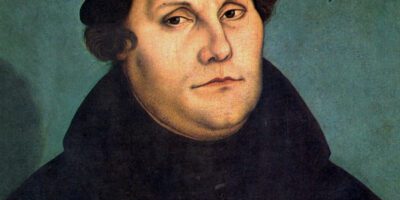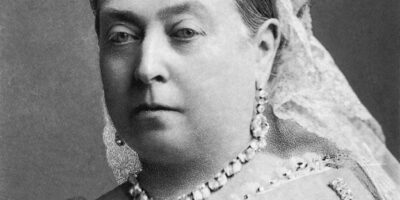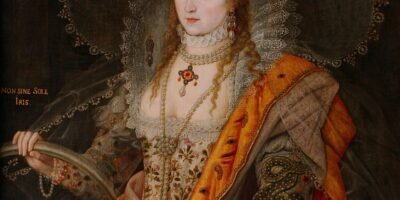
A photo of Lech Walesa by MEDEF – Wikimedia commons
Top 10 Fascinating Facts about Lech Walesa
Lech Wałęsa was born on 29 September 1943. He is a Polish statesman, dissident, and Nobel Peace Prize laureate, who served as the President of Poland between 1990 and 1995.
After winning the 1990 election, Wałęsa became the first democratically elected President of Poland since 1926 and the first-ever Polish President elected in the popular vote.
A shipyard electrician by trade, Wałęsa became the leader of the Solidarity movement and led a successful pro-democratic effort that in 1989 ended the Communist rule in Poland and ushered in the end of the Cold War. Following are the top ten fascinating facts about Lech Walesa.
1. Walesa was arrested several times when he was a trade union activist

Lech Walesa photo by Jarle Vines – Wikimedia commons
TOP 10 AMAZING FACTS ABOUT BENOIT MANDELBROT
While working at the Lenin Shipyard, Wałęsa, an electrician, became a trade-union activist, for which he was persecuted by the Communist authorities, placed under surveillance, fired in 1976, and arrested several times.
In August 1980, he was instrumental in political negotiations that led to the ground-breaking Gdańsk Agreement between striking workers and the government. He co-founded the Solidarity trade union whose membership rose to over ten million people.
2. He presided over Poland’s transition from communism to free-market liberal democracy
After martial law in Poland was imposed and Solidarity was outlawed, Wałęsa was again arrested. He continued his activism and was prominent in the establishment of the Round Table Agreement that led to the semi-free 1989 Polish legislative election and a Solidarity-led government. This was after he was released from custody.
He presided over Poland’s successful transition from Communism into a free-market liberal democracy, but his active role in Polish politics diminished after he narrowly lost the 1995 Polish presidential election. In 1995, he established the Lech Wałęsa Institute.
3. Walesa was brought up by his mother

Lech Walesa photo by Olivier Ezratty – Wikimedia commons
Wałęsa was born in Popowo, Reichsgau Danzig-West Prussia, a German-occupied Poland. His father, Bolesław Wałęsa, was a carpenter who was rounded up and interned in a forced labor camp at Młyniec by the German occupying forces before Lech was born.
Bolesław returned home after the war but died two months later from exhaustion and illness. Lech’s mother, Feliksa Wałęsa has been credited with shaping her son’s beliefs and tenacity.
4. Walesa was 30 when he lost both parents
After his father’s death, when Lech was nine, Feliksa married her brother-in-law, Stanisław Wałęs, a farmer. Lech had three elder full siblings; Izabela, Edward, and Stanisław; and three younger half-brothers; Tadeusz, Zygmunt, and Wojciech.
In 1973, Lech’s mother and stepfather emigrated to the US for economic reasons. They lived in Jersey City, New Jersey, where Feliksa died in a car accident in 1975, and Stanisław died of a heart attack in 1981. Both of them were buried in Poland. Walesa was orphaned together with his siblings.
5. Walesa was an associate degree in electrical technology

Lech Walesa photo by Cayman42 – Wikimedia commons
Lech graduated from a primary and vocational school in nearby Chalin and Lipno as a qualified electrician. He worked as a car mechanic from 1961 to 1965, and then embarked on his two-year, obligatory military service, attaining the rank of corporal.
After his service in the military, Walesa began work on 12 July 1967 as an electrician at Lenin Shipyard, now called Gdańsk Shipyard in Gdańsk. He was an electrician when he started his activitist duties.
6. Wałęsa won the presidential election of 1990
Following the June 1989 parliamentary elections, Wałęsa was disappointed that some of his former fellow campaigners were satisfied to govern alongside former Communists. He decided to run for the newly re-established office of president, using the slogan, “I don’t want to, but I have to”
On 9 December 1990, Wałęsa won the presidential election, defeating Prime Minister Mazowiecki and other candidates to become Poland’s first freely elected head of state in 63 years, and the first non-Communist head of state in 45 years.
7. He founded his political party when he was in office as president

Lech Walesa photo by Piotr Drabik from Poland – Wikimedia commons
In 1993, he founded his political party, the Nonpartisan Bloc for Support of Reforms (BBWR). The political party was the grouping’s Polish-language acronym echoed that of Józef Piłsudski’s “Nonpartisan Bloc for Cooperation with the Government,” of 1928–35, likewise an ostensibly non-political organization.
The Nonpartisan Bloc for Support of Reforms was an officially nonpartisan organization affiliated with Lech Wałęsa. It was established in 1993 and 1997 became part of Solidarity Electoral Action.
8. Wałęsa supported Poland’s entry into NATO and the European Union
Poland became a member of NATO in 1999 and the EU in 2004. In the early 1990s, he proposed the creation of a sub-regional security system called NATO bis. The concept was supported by right-wing and populist movements in Poland.
However, garnered little support abroad; Poland’s neighbors, some of which like Lithuania, had recently regained independence and tended to see the proposal as Polish neo-imperialism.
9. During his post as president Walesa was highly criticized

Lech Walesa photo by Piotr Brabik photo – Wikimedia commons
Wałęsa has been criticized for a confrontational style and for instigating “war at the top”, whereby former Solidarity allies clashed with one another, causing annual changes of government.
This increasingly isolated Wałęsa on the political scene. As he lost political allies, he came to be surrounded by people who were viewed by the public as incompetent and disreputable. Mudslinging during election campaigns tarnished his reputation.
Some thought Wałęsa, an ex-electrician with no higher education, was too plain-spoken and too undignified for the post of president. Others thought him too erratic in his views or complained he was too authoritarian and that he sought to strengthen his power at the expense of the Sejm.
Wałęsa’s national security advisor Jacek Merkel credited the shortcomings of Wałęsa’s presidency to his inability to comprehend the office of the president as an institution. He was an effective union leader capable of articulating what the workers felt but as president he had difficulty delegating power or navigating bureaucracy.
10. He started traveling around the world after his post in the office

Lech Walesa photo by Zorro2212 – Wikimedia commons
After losing the 1995 election, Wałęsa announced he would return to work as an electrician at the Gdańsk Shipyard. Soon afterward, he changed his mind and chose to travel around the world on a lecture circuit.
Wałęsa developed a portfolio of three lectures (“The Impact of an Expanded NATO on Global Security”, “Democracy: The Never-Ending Battle” and “Solidarity: The New Millennium”), and reads them at universities and public events with an appearance fee of around £50,000 ($70,000).
Planning a trip to Paris ? Get ready !
These are Amazon’s best-selling travel products that you may need for coming to Paris.
Bookstore
- The best travel book : Rick Steves – Paris 2023 – Learn more here
- Fodor’s Paris 2024 – Learn more here
Travel Gear
- Venture Pal Lightweight Backpack – Learn more here
- Samsonite Winfield 2 28″ Luggage – Learn more here
- Swig Savvy’s Stainless Steel Insulated Water Bottle – Learn more here
Check Amazon’s best-seller list for the most popular travel accessories. We sometimes read this list just to find out what new travel products people are buying.









